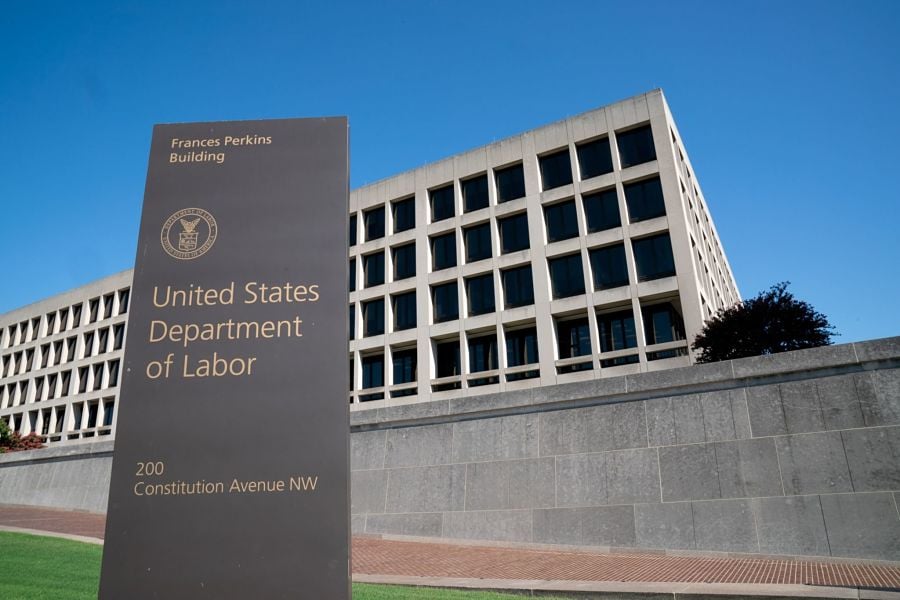

Smaller financial advisory firms may not be ready for the regulatory world they’re living in now that the DOL is policing most of a retirement-savings advice rule.
On Tuesday, the Department of Labor began enforcing an investment advice regulation for retirement accounts that was approved by the agency late in the Trump administration.
The DOL fiduciary rule provides exemptions under federal retirement law — the Employee Retirement Income Security Act — allowing retirement-plan fiduciaries to receive compensation for advice that would otherwise be prohibited, such as third-party payments, as long as they act in a retirement saver's best interests.
To qualify for exemption, most advisers making recommendations for retirement accounts must declare their fiduciary status in writing to their clients. They also must disclose their compensation structure and conflicts of interest, and adopt policies and procedures to comply with impartial conduct standards.
The regulation would trigger a fiduciary standard of care for most recommendations to roll retirement funds over from 401(k) plans to individual retirement accounts.
Some smaller firms are not fully aware of the new requirements and could have inadvertently missed the Feb. 1 deadline, said Fred Reish, a partner at Faegre Drinker Biddle & Reath. There's also the risk that their policies and procedures won't withstand regulatory scrutiny.
"For example, some firms may not appreciate the process required, and the information that must be gathered to make a compliant rollover recommendation,” Reish wrote in an email.
The fiduciary rule became effective last February and the DOL was slated to begin enforcing it in December. But the agency delayed implementation for most of the rule until Tuesday.
Another part of the rule will go into force on July 1. At that time, retirement advisers must document and disclose why a rollover recommendation is in a client's best interests.
The rule is in place after years of work on the issue. An Obama administration fiduciary rule was vacated by a federal court, which led to the Trump administration version.
Despite the long regulatory road, implementation will be a heavy lift, said Barry Salkin, a senior attorney at Wagner Law Group.
Financial firms “have had a substantial amount of time to do it,” Salkin said. “I don’t know if they’re there yet. There are still items you’d like to have the DOL provide more guidance on.”
The insurance firm Principal was ready for Tuesday’s compliance deadline in part because of changes it made to its policies to prepare for the Obama-era rule, said Lance Schoening, director of policy for Principal Financial Group.
For instance, the firm’s advisers don’t make rollover recommendations immediately when someone has had a life event — such as retiring or losing a job — that might affect their 401(k) plan. Instead, Principal initially focuses on educating the person about his or her options.
“We’ve maintained a number of procedures that have helped us run on a track to comply with the new prohibited transaction exemption,” Schoening said.
The extra time to prepare internal systems for documenting rollover decisions — and comparing a new plan to a client’s existing plan — will be helpful, he said. “Firms are going to have to really focus on getting that information from their clients.”
The fiduciary rule that is now in force covers investment advisers and brokers and is meant to align with the Securities and Exchange Commission’s Regulation Best Interest, the broker standard of care.
But independent insurance agents are governed by a different rule, known as 84-24. Those advisers are policing themselves, said Ryan Brown, corporate counsel at M&O Marketing.
“No financial institution has raised its hand to say we’ll make sure insurance agents are in compliance with this,” Brown said.
The DOL has on its agenda another rulemaking proposal that likely would expand the definition of who is a fiduciary and include more advisers, such as insurance agents who are not adhering to 84-24.
“The anticipation is that the department may want to conform those exemptions to the new exemption that is [now] online,” Schoening said.

Catch-up contributions, required minimum distributions, and 529 plans are just some of the areas the Biden-ratified legislation touches.

Following a similar move by Robinhood, the online investing platform said it will also offer 24/5 trading initially with a menu of 100 US-listed stocks and ETFs.

The private equity giant will support the advisor tech marketing firm in boosting its AI capabilities and scaling its enterprise relationships.

The privately backed RIA's newest partner firm brings $850 million in assets while giving it a new foothold in the Salt Lake City region.

The latest preliminary data show $117 billion in second-quarter sales, but hints of a slowdown are emerging.
Orion's Tom Wilson on delivering coordinated, high-touch service in a world where returns alone no longer set you apart.
Barely a decade old, registered index-linked annuities have quickly surged in popularity, thanks to their unique blend of protection and growth potential—an appealing option for investors looking to chart a steadier course through today's choppy market waters, says Myles Lambert, Brighthouse Financial.
